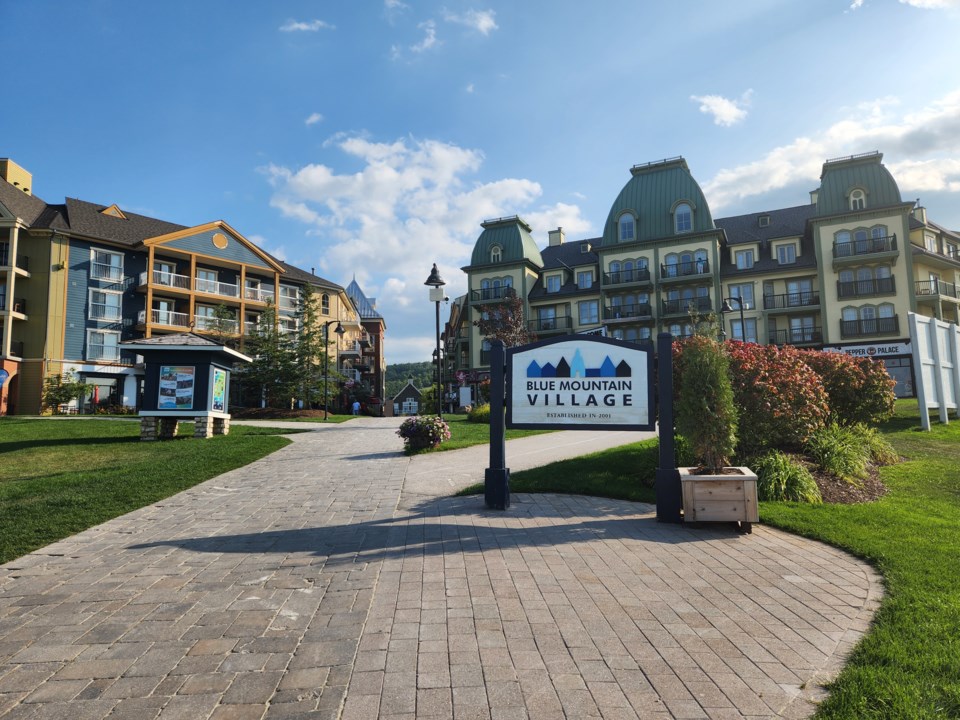The Blue Mountains council is pondering ending a special property tax class that applies to hotel rental units at the Village at Blue.
At its committee of the whole meeting on Aug. 26, council received a delegation from MPAC (Municipal Property Assessment Corporation) about the resort condominium property class.
The resort condominium tax class is a unique property tax classification that was created by the provincial government in 2005 and applies only to the Town of The Blue Mountains.
It essentially provides a property tax break for owners of condominium units at the Village, who also rent their properties out as hotel units when they are not using them. Having a stand-alone tax class keeps the condo units that are also rented out as hotel units out of the commercial tax class. Commercial properties pay property taxes at a higher rate than residential properties.
Some time ago, council had invited MPAC to a meeting to discuss the property tax class after local resident Rick Tipping questioned council about the matter.
The tax class came into existence close to 20 years ago after the town lobbied the province to create the classification for condo/hotel units. It applies to municipalities with a population under 10,000 and the town and Grey County passed bylaws to implement the property tax class. The province recently updated legislation that allows municipalities to opt out of using the tax classification.
The exact origins of why the town requested such a tax class are murky as the lobbying efforts on the matter occurred two decades ago. Town CAO Shawn Everitt deferred to MPAC when he was asked about the history of the situation and MPAC representative Anthony Flemming, who presented to council at the meeting, promised to do more research about the history of the tax class and report back to council.
“It was a helping point to get them going,” Coun. Gail Ardiel, who was a member of council in 2005, recalled.
Fleming provided data on the impact the tax class has on the condo units. Right now, with the tax class in place, a resort condominium assessed at $211,000 pays $2,019 in property taxes. If the class was ended and the same unit went into the commercial category it would pay $4,056 in property taxes.
Although council did not take a formal position on the tax class, members were clearly considering bringing the special tax class to an end. Coun. Alex Maxwell asked Flemming what would be needed to phase-in the end of the situation. Flemming said if the town and Grey County withdrew their bylaws participating in the tax class, MPAC would begin a review process to re-classify the impacted properties. He estimated it would take about a year to be fully implemented, depending on the timing.
Coun. June Porter pointed out that, in the last census, The Blue Mountains was just 600 residents away from having a population of more than 10,000 residents, which would automatically end its participation in the special property class. Porter noted that with the growth projected in the community the end of the tax class was “inevitable.”
Council took no action on the matter, other than to receive the presentation from Flemming.
During the public comments portion of the meeting later in the proceedings, Blue Mountain Village Association representative Patti Kendall spoke to council and urged the town to continue the unique tax class.
“Changing the property class would risk future investment,” Kendall told council
